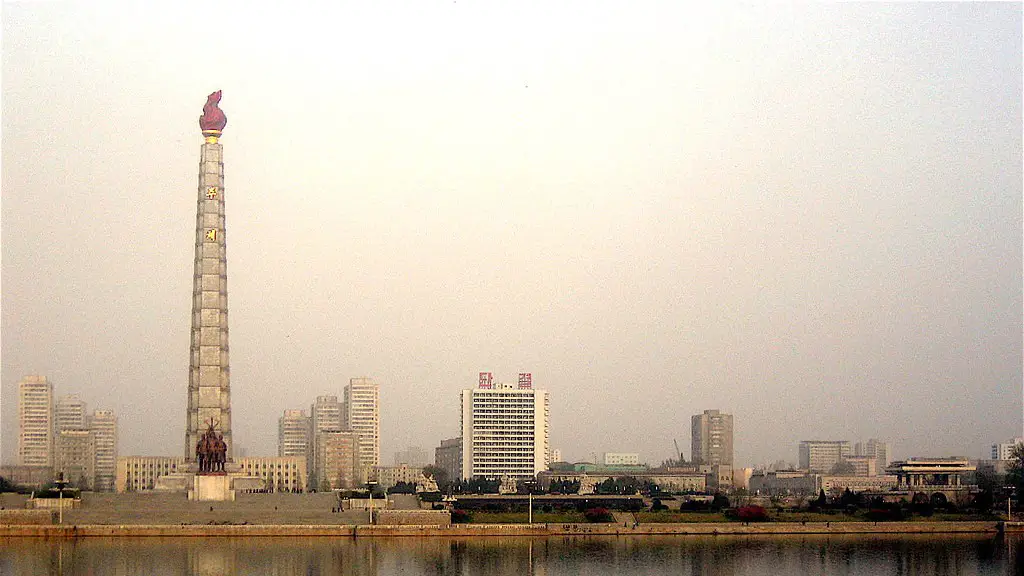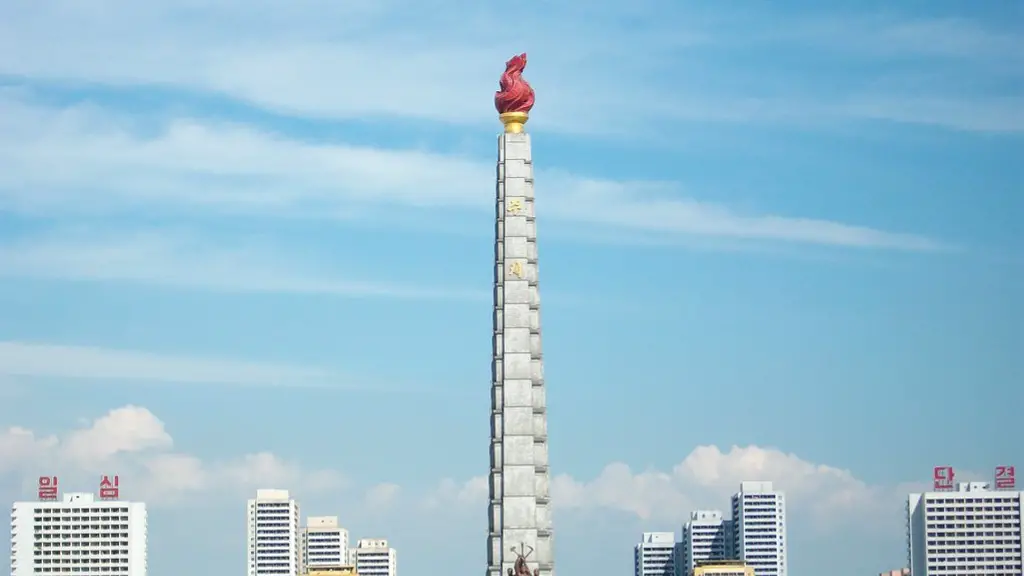Since the Korean War ended in 1953, North Korea has been a reclusive nation, cut off from the rest of the world. In recent years, however, North Korea has been increasingly involved in international affairs and its nuclear program has been a source of concern for the global community. While North Korea has agreed to denuclearize in the past, it has not followed through on its commitments. Therefore, many experts believe that North Korea remains a threat to the international community.
There is no one-size-fits-all answer to this question, as the level of threat posed by North Korea depends on a number of factors, including the current geopolitical climate and the country’s nuclear capabilities. However, some experts believe that North Korea still poses a significant threat to regional and global security, and that its nuclear program must be closely monitored.
Is North Korea a serious threat?
North Korea’s long-range missile and nuclear programs represent the most immediate security challenge to the region. Any major instability or conflict on the Korean Peninsula would have severe strategic, economic and humanitarian repercussions.
The 2017–18 North Korea crisis was a period of heightened tension between North Korea and the United States throughout 2017, which began when North Korea conducted a series of missile and nuclear tests that demonstrated the country’s ability to launch ballistic missiles beyond its immediate region and suggested that it was developing nuclear weapons capable of reaching the continental United States. In response, the United States and its allies began a campaign of economic sanctions and diplomacy designed to pressure North Korea into dismantling its nuclear and missile programs. The crisis reached its peak in November 2017 when North Korea test-launched a new intercontinental ballistic missile capable of reaching any target in the continental United States. However, following a series of diplomatic initiatives by South Korea, North Korea agreed to participate in the 2018 Winter Olympics, and subsequently held a series of meetings with South Korean and American officials which led to a reduction in tensions.
Is the North Korean war still going on
The Korean War was a conflict between North and South Korea that began in 1950. However, no peace treaty was ever signed, and the two Koreas are technically still at war. In April 2018, the leaders of North and South Korea met at the DMZ and agreed to work toward a treaty to end the Korean War formally. This would be a major step toward peace on the Korean Peninsula, and it is hoped that the two Koreas can finally bring an end to this conflict.
The Hwasong-14 is a North Korean ballistic missile that is capable of travelling up to 4,500km. This puts the US island of Guam within range of the missile. North Korea has also been testing the Hwasong-14 ballistic missile with a range of 8,000km. Some studies suggest that the missile could travel as far as 10,000km, making it capable of reaching New York.
Can nukes reach the US?
The New START treaty was signed in 2010 by the United States and Russia in an effort to limit the number of nuclear warheads each country could have. The treaty is set to expire in February 2026, and Russia has also signed the Non-Proliferation of Nuclear Weapons treaty.
If you are considering traveling to North Korea, the US Department of State warns against it due to the continuing risk of arrest and long-term detention of US nationals. They advise exercising increased caution if you do travel there.
Has the US ever attacked North Korea?
The Air Forces of the United Nations Command carried out an extensive bombing campaign against North Korea from 1950 to 1953 during the Korean War. This was the first major bombing campaign for the United States Air Force (USAF) since its inception in 1947 from the United States Army Air Forces (USAAF). The campaign was successful in destroying much of North Korea’s infrastructure and military capacity, and paved the way for the eventual UN victory in the war.
The People’s Republic of China and the Democratic People’s Republic of Korea (DPRK) have a close, special relationship. China is often considered to be North Korea’s closest ally. The two countries have a mutual aid and co-operation treaty, which is currently the only defense treaty either country has with any nation.
The treaty was first signed in 1961 and has been renewed several times. It obligates each country to come to the aid of the other if either is attacked by a third party. The treaty has been a key factor in maintaining peace and stability on the Korean Peninsula.
Despite the close relationship between China and North Korea, there have been tensions in recent years. China has been critical of North Korea’s nuclear weapons program, and has supported UN sanctions against the DPRK. However, China remains committed to the treaty and to its friendship with North Korea.
Who gave North Korea nukes
Pakistan’s former top scientist, Abdul Qadeer Khan, allegedly supplied key data, stored on CDs, on uranium enrichment and information to North Korea in exchange for missile technology around 1990–1996, according to US intelligence officials. Prime minister Benazir Bhutto of Pakistan was allegedly involved in this exchange. This data is believed to have helped North Korea develop its nuclear weapons program.
The Reconquista was a series of wars fought between the Christians and Muslims in Spain, with the Christians eventually prevailing and reclaiming the country. The war began in 722 AD, when the Muslims first invaded Spain, and ended in 1492 AD, when the last Muslim stronghold was conquered. During the war, both sides inflicted tremendous damage on each other, with the Muslims destroying entire cities and the Christians sometimes resorting to massacre and indiscriminate killing. In the end, however, the Christians were victorious, and Spain was once again a Christian country.
What war never ended?
The Korean War was a conflict between North and South Korea, in which the United States sided with the South. The war began in 1950 and ended in 1953, but no formal peace treaty was ever signed, meaning that technically, the war never ended. The war had a profound impact on global geopolitics, as it set a precedent for American presidents to wage wars. The war also shaped the way the United States approaches conflicts in the present day.
It’s great to see that South Korea is deepening its ties with NATO, especially given the volatile situation on the Korean peninsula. By opening a diplomatic mission at NATO headquarters, South Korea is showing its commitment to working with the alliance to promote peace and stability in the region.
Where would a nuclear bomb hit in the US
In the event of a nuclear attack on US soil, the city that would be targeted would most likely be one of six: New York, Chicago, Houston, Los Angeles, San Francisco, or Washington, DC. However, a public-health expert has stated that any of these cities would have difficulty providing emergency services to the wounded. This is due to the fact that a nuclear attack would cause an overwhelming amount of damage and destruction, making it difficult for first responders to reach those in need.
Maintaining the option of launching weapons on warning of an attack leads to rushed decision making. In the event of a false alarm, the president would have to make a decision within minutes whether to launch a retaliatory strike. This could lead to disastrous consequences.
How long would a nuke take to travel from North Korea?
According to missile experts, a North Korean ICBM could hit the US mainland less than 30 minutes after launch. Pyongyang is more than 5,000 miles away from the US West Coast, and the estimated range of the ICBM is 8,100 miles. This means that the North Korean regime poses a serious threat to the safety of the American people. The US government must take action to protect its citizens from this growing threat.
The United States only has a limited ability to destroy an incoming nuclear intercontinental ballistic missile, according to a study released last month by the American Physical Society. The study concluded that the US would need to expend a large amount of resources in order to have a high chance of destroying an incoming ICBM.
Final Words
There is no easy answer to this question. While North Korea’s nuclear and missile programs pose a serious threat to the region and the world, the country’s overall military capabilities are relatively limited. Additionally, North Korea’s government is notoriously unpredictable and prone to rash decisions, which makes it difficult to assess the true extent of the threat they pose.
North Korea is still a threat because they continue to develop nuclear weapons and ballistic missiles. They have conducted several nuclear tests, including one in 2017, and have been rebuilding a rocket launch site. They are also willing to sell their nuclear technology to other countries.





